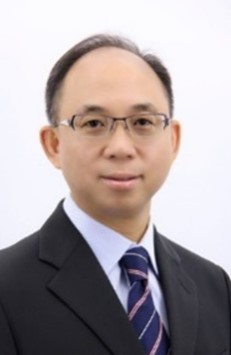Keynote Speaker 1 - Professor Joseph Lai

With a first-class honours bachelor’s degree in building services engineering, a master’s degree in environmental management, a PhD in facility management and over a decade of industrial experience, Prof. Lai combines professional and academic roles as a scholar in teaching and research. Currently, Prof. Lai is an Associate Head of the Department of Building Environment and Energy Engineering at The Hong Kong Polytechnic University. He also serves as Co-Editor of the Facilities journal, Associate Editor of the Smart and Sustainable Built Environment journal, Editorial Advisory Board Member of the Journal of Engineering, Design and Technology, and Academic Advisor (Asia) of the International Facility Management Association Foundation.
Establishment of Decision-Support System for Smart Retrofitting for Office Buildings
Abstract
With global buildings aging and climate challenges intensifying, there is an urgent need for smart retrofitting (SR)—the integration of smart building technologies into existing structures to enhance energy efficiency, occupant comfort, and operational resilience. This presentation introduces a structured smart retrofitting decision-support system (SRDSS) developed to guide the optimal selection of SR alternatives. The system model integrates the Analytic Network Process (ANP), the Entropy method and the Technique for Order Preference by Similarity to Ideal Solution (TOPSIS) method to capture both expert judgment and objective data within a holistic multi-criteria decision-making framework. Developed through a rigorous process involving a systematic literature review, focus group validation, questionnaire survey, expert interviews and real-world case studies from Hong Kong and Sri Lanka, the model addresses the complexities of SR decision-making in both developed and developing regions. An electronic tool that operationalizes the SRDSS for practical use by facility managers and decision-makers has also been developed. The presentation concludes with a discussion of necessary future enhancements, offering both academic and practical contributions of the SRDSS to sustainable building management.
Keynote Speaker 2 - Mr. Lord Mangaraja

Mr. Lord Mangaraja holds a bachelor's degree in Environmental Engineering and a master's degree in Management of Information Technology. With a strong academic foundation and over 25 years of industry experience, he has established himself as a prominent expert in environmental, health, and safety (EHS). He currently serves as the Head of Environmental, Health, and Safety at Ericsson (publ) in Kuala Lumpur. In addition, he is the Chairman of the Telco Safety Leaders Forum Malaysia — a key platform that significantly contributes to advancing occupational safety and health within the telecommunications sector.
Empowering Sustainability: Tech-Driven Revolution for Safety-Enabled Facilities Management
Abstract
Facilities Management is evolving beyond environmental responsibility to embrace occupational health and safety as a fundamental pillar. As workplaces and technological landscapes transform, integrating health and safety initiatives into digital frameworks is no longer just an advancement; it is an imperative. This shift is about more than compliance; it is about fostering environments where efficiency and well-being coexist seamlessly. By embedding occupational health and safety into the core of technological innovation, the future is being shaped where workplaces not only enhance productivity but also nurture resilience, security, and human potential.
In the era of hybrid work, where employees may not be present in the office consistently, our approach should include flexible monitoring solutions that address the dynamic nature of modern workplaces. By leveraging IoT devices and AI analytics, we need to aim to continuously monitor workplace conditions. These initiatives are designed to create a more resilient and supportive work environment, contributing to both environmental goals and human capital well-being.
Furthermore, the emergency response strategies to accommodate the fluid nature of hybrid work settings ensure rapid and effective responses even when the same individuals aren't consistently present. By sharing expertise and resources, we can accelerate the development and deployment of groundbreaking technologies that benefit both the environment and the people within it. Therefore, the integration of facilities management, occupational health, and emergency preparedness makes a meaningful impact on the global stage.